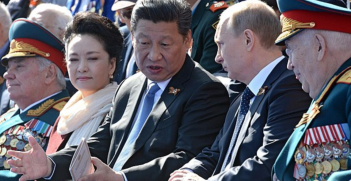Torture is Never the Right Choice

On 26 June, we marked the International Day in Support of Victims of Torture. Torture and ill treatment are far from being archaic practices banished to the chapters of history books. In the darkest spaces of the world—in the prison cells of war zones and elsewhere—torture continues to be used as a technique to coerce, to punish and to intimidate, and sadly, no country, or community, is immune.
As a global community, we have outwardly rejected torture—it is banned under both international humanitarian law and human rights law—however, we are still a long way from preventing this most cruel of human acts from occurring.
Debates surrounding the legitimacy or usefulness of torture persist with alarming frequency. In this age of the war on terror, torture and mistreatment are often excused as appropriate means of protecting national security. The “ticking bomb” scenario—an abstract situation in which torture is exceptionally justified to prevent an imminent threat to society—is just one of the many examples used to try to legitimise the practice.
From the perspective of the International Committee of the Red Cross (ICRC), these discussions are misguided. The ICRC is unequivocal in its position against torture as an illegal, immoral and unethical practice. Torture is an affront to humanity and constitutes an intolerable outrage upon the victims themselves and upon human dignity.
The absolute prohibition on torture and other cruel, inhuman or degrading treatment is effective everywhere at all times and in all circumstances. This prohibition is laid down in numerous international treaties, including the 1949 Geneva Conventions, which are universally ratified.
A torturous cycle
In contexts where the practice of torture is clearly established, it frequently occurs that no suitable action is taken against the perpetrators, leading to impunity for those who commit acts of torture and continuation of ill treatment. This abuse reinforces hatred; it can generate deep resentment within families and communities and feed a cycle of revenge. Torture also has a corruptive impact on its perpetrators and the institutions they serve. Ultimately, whole societies are impacted by the corrosive effects of torture, especially where it goes unpunished.
As an organisation that visits detainees in conflict zones around the world, the ICRC continues to witness first hand evidence of torture, in particular at the time of arrest, early on in detention and during investigation. Last year, we visited more than 900,000 people held in over 1,500 places of detention in 96 contexts. Too often during these visits our delegates see the consequences of torture and ill treatment: men, women and children who have been abused and degraded. Physical mistreatment is usually serious, sometimes irreversible, but it is the psychological scars that can last longer and run much deeper.
Preventing abuse
Despite the numerous obstacles in the fight against torture, the ICRC is unrelenting in its commitment to prevent ill treatment from happening in the first place and to put an end to it when it does occur. In contexts of armed conflict or other situations of violence, our delegates seek to access detainees as soon as possible after their arrest. We also arrange to make repeat visits in order to safeguard against forced disappearances and to protect detainees from reprisals when they dare to speak out about torture.
The ICRC also works with authorities to ensure respect for judicial guarantees and procedural safeguards for detainees. This is a crucial step towards preventing abuse against people deprived of their liberty and improving conditions of detention. If we identify that torture is occurring, we will use all possible channels to reach members of the administrative, judicial, military and political systems who are capable of influencing the situation.
Almost always, victims of torture require long-term physical, psychological and social rehabilitation. We provide support to those who have suffered abuse and assist in their recovery, working with organisations that specialise in this field. All of this work is done in a strictly bilateral and confidential manner, which is key to obtaining and maintaining the trust of victims and their families, and to accessing actors responsible for alleged abuse.
The way forward
History shows that torture fundamentally degrades a society, destroys the fabric of communities and erodes trust in authority. It is an indefensible practice that preferences short-term outcomes over human dignity and the integrity and credibility of legal and political systems. It is critical that all governments declare their commitment to preventing torture by acceding to international treaties. These laws must then be implemented at a national level. Those that contravene these laws by using torture must be prosecuted and punished.
Governments must also put in place concrete provisions for remedies and reparations to those who have suffered from torture and ill treatment and take practical measures to support their recovery. Whatever the stakes, the international community must remain committed to its resolve that torture or any other cruel, immoral or inhumane treatment is never the right choice.
Andrea Lunt is the communications officer at the International Committee of the Red Cross Australia Mission (ICRC). This article is published under a Creative Commons Licence and may be republished with attribution.





